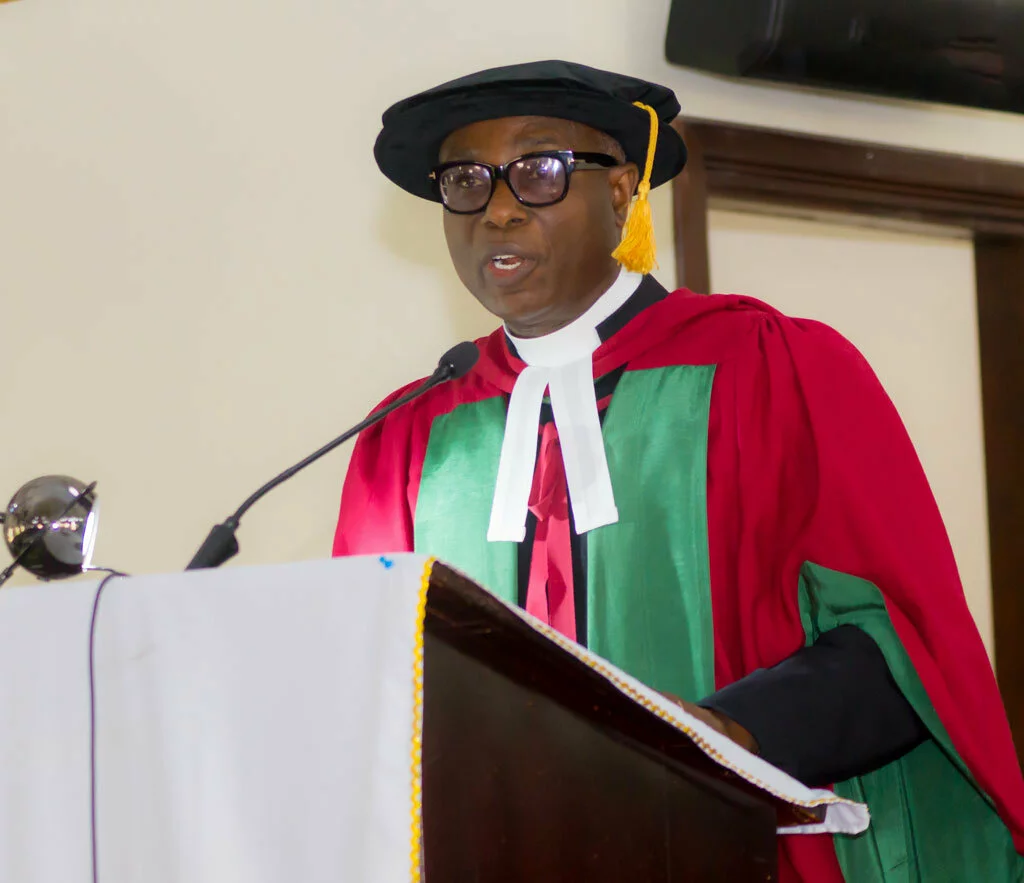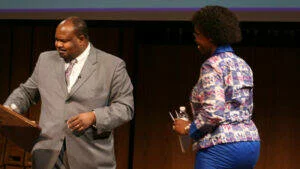In African countries like Ghana where people take delight in inscribing cryptic religious statements on their properties visitors find this signwriting culture very revealing. These writing are part of the popular religious culture. A lot of them insinuate the fact that enemies may either be working against people or plotting their downfall.
Thus inscriptions like: “my enemy is not God”, “the insect that bites is one already hidden in your cloth”, “destruction comes from one’s habitation [family]”, “my enemies work in futility”, “my God neither slumbers nor sleeps”, “their praise of you is not genuine” [they wish you evil although the smile with you], “the downfall of a man is not the end of his life”, and so on and so forth. They are commonly found on taxis, commercial vehicles and in front of kiosks in which simple household items and groceries are sold in communities. One of the most common is the inscription “life is war.” Most of the time, these inscriptions have personal stories and experiences behind them. They very often are insinuating statements directed at imaginary and perceived enemies working against one’s positive fortunes in life. “Every statement of insinuation”, the Akan of Ghana say, “has an owner” (directed at a particular person)! Here in this blog I start with these inscriptions simply to make the point that they are one way in which to appreciate the widespread belief in witchcraft as part of African popular culture.
Agency and Causation
Life is war! The conditions that generate belief in and accusations of witchcraft, we learn from our earlier blogs, apply whether people are winning or losing the battles of life. The first, relates to people who feel that they are losing in the battle with the challenges of life through poverty and a general lack of progress in life, ill health, misfortune and other forms of failure. They are the first group that point at witches as the cause of their difficulties but they are not the only ones. “The downfall of a man is not the end of his life” is an inscription that suggests someone may be struggling but there is hope. It is ironic that those who seem to be winning through access to wealth, good marriages, good health and general prosperity also live in fear of witches. The understanding is that prosperity generally attracts envy in African societies and peopleThe competition, marginalization & difficult economic conditions brought about by modern capitalist systems have done little to diminish the belief in the power of evil in African societies. resort to witchcraft in order to destroy those who do well. If these understandings of the prevalence of witchcraft beliefs as part of African cosmological ideas are stretched into the realm of modern capitalism, we will understand why the creation of wealth, industrialization and globalization has not necessarily diminished the belief in witchcraft and witchcraft accusations.
Witches: African?
The sense of the power of the supernatural, especially supernatural evil in the African imagination is quite strong. The competition, marginalization and difficult economic conditions brought about by modern capitalist systems have done little to diminish the belief in the power of evil in African societies.
We have already in an earlier blog talked about how a charismatic pastor in Ghana prayed fervently for God to deliver the local currency from the control of witches. In a lecture on “Capitalism and the Pentecostal Subject” at the Trinity Theological Seminary, Ghana, in October 2015, Nimi Wariboko of Boston University shared a joke on reinterpretations of witchcraft that I found quite fascinating. A Nigerian pastor was preaching about witches in the USA. He spoke about how witches manipulate for ill the lives and fortunes of their enemies. They “eat” their wealth and in its place inflict poverty on people. Witches prevent couples from having children, prevent people from saving enough to remit their parents and siblings in Africa, and even discourage Christians from attending Sunday church services all in a bid to bring them to ruin. In other words, the Nigerian pastor blamed African witches for all the problems that afflict people in this life.
Witches: American?
According to this anecdotal story, after the pastor’s narration of what witches can accomplish in terms of misfortune, one woman in the congregation stood up to respond to the sermon. “Pastor”, she called the attention of the speaker to herself, “in the USA we do not have those kinds of witches. The ones we have are called Bills.” The woman then goes on to talk about how pilling bills prevent people from remaining faithful to the payment of tithes and offerings and even prevent people from taking care of their aged parents. People skip church on Sundays because they have to work for fear of this witch called Bills. “Bills are the witches of New York City. They come into your house and sit on your tables, counter tops, and on the dining table. They do not need to visit in the night or appear invisible. The mailman or the email system brings the American witches to your home.” That was not the end of the woman’s submission: “If the power of a witch lies in the ability to manipulate another person’s behavior negatively, then nothing surpasses the American witch. American witches are more powerful than the African ones.”
Perpetuating Witchcraft beliefs
When I heard this story, which I have paraphrased in part here, I understood why even in the developed West, first generation African immigrants circulate stories about their relations in Africa and how through witchcraft they try to manipulate their lives in the Diaspora. Given that some immigrants are unskilled and undocumented, existence within those conditions can be precarious and as Africans, it is quite easy to problematize those situations in terms of the powers of supernatural evil. The belief in witchcraft and witchcraft accusations among Africans living abroad begin from their home countries. It is still the practice that many Africans do not tell relations about opportunities to travel or live abroad in the fear that their ambitions may be supernaturally terminated prematurely. We have noted in earlier blogs that migration, especially to modern Western locations, is generally seen as an “open door” to prosperity. This mindset is reinforced by prosperity gospel preachers who as we have learnt in some of the earlier blogs specialize in making prophetic declarations about seeing visions of people living comfortable lives in Hamburg, London, Amsterdam, Rome, New York and Paris. Living abroad, as Dutch religious anthropologist Gerrie ter Haar titles her book on African immigrant Christianity in Europe, is for many a Halfway to Paradise. For many immigrants what usually confronts It is not uncommon for “envious” parents, grand parents, and other relations in Africa to be accused of being behind the difficulties of their relations who live abroadthem at the end of the journey can be anything but a state of paradise. Their experiences can be traumatic. When things do not turn out the way they were expected to be, people look into their family circles for who must be responsible for their misfortunes.
The economic difficulties for which the lady blamed the American “witch” called Bills are in many African contexts attributed to the machinations of actual witches believe to have the power to influence lives through negative spiritual activities. African video films that tell of how witches invade peoples’ homes and lives and bring them to ruin are very highly patronized among African immigrants. Their story lines help to reconnect with worldviews that have always been part of their lives and that reinforce witchcraft beliefs and accusations. Thus it is not uncommon for “envious” parents, grand parents, and other relations in Africa to be accused of being behind the difficulties of their relations who live abroad. African prosperity hermeneutics at various levels feed into these beliefs when visiting preachers from Africa, conscious of the difficulties associated with Bills and other hazards of the Diaspora craft messages and prayers that reinforce beliefs in the prevalence of supernatural evil in their affairs. It is also not uncommon for Africans completely attuned to Western modes of thought and lifestyles to complain with consternation about the enormous amounts of resources that others who have not been so “westernized” spend on the services of pastors and prophets in order to solicit prayers to protect them from evil. As one such immigrant told me, if there was no witchcraft in the world, Jesus would have added the line “deliver us from evil” to the prayer he thought his disciples!






I was at the verge of losing my marriage when Dr.Excellent stepped in and rescued me. My husband had filed for divorce after an unending dispute and emotional abuses we both suffered due to misunderstandings. He left the house and refused to come back. I sought for Dr.Excellent knowing I don’t wish to suffer another penury due to divorce cases and losing my man. I complied with his work procedures which was very easy and he worked for me. The love and connection between me and my partner was restored and he came back and got the divorce case canceled. It’s all for a fact that Dr.Excellent is honest and transparent in helping people and you too reading this can get the solution you seek in restoring joy and happiness in your marriage or relationship. contact Dr.Excellent for help now. Here his WhatsApp: http://wa.me/+2348084273514 “Or email him at: [email protected] ,Read more:https://bestlovespelldr.weebly.com